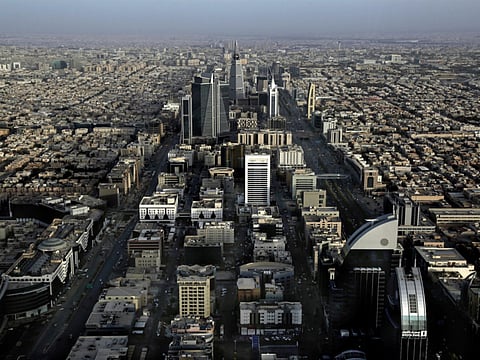Honesty is indeed the best policy
Rewards of being true to oneself are aplenty and all those crooks who get away with their ill-gotten gains should be indoctrinated to believe in this ideology

We are taught at a very young age that honesty is the best policy. In a nutshell, it means being honest and true all through our lives — even in difficult situations. Being honest provides mental peace to a person. An honest person is generally happy and peaceful because he or she does not have to live with guilt. Being honest with everyone in our life helps us to get mental peace because we do not have to remember the lies we may have told people in order to save ourselves.
In the past few months, a topic at many social settings was that of the arrest and detention of princes, businessmen and government officials in Saudi Arabia, who had been rounded up and sequestered facing charges of corruption, money laundering, kickbacks and defrauding the government of billions of riyals.
Many people I had come across expressed their appreciation for the government’s stand against the plague of corruption that had entwined itself in much of Saudi society since the beginning of the 1980s. So much so, that projects paid for adequately by the government in the last century are yet to materialise. With these arrests and detentions, the residents of Saudi Arabia now expect increased accountability and financial transparency and are clamouring for more arrests of fat cats within and outside the country who have padded their bank accounts illegally at the expense of the state and its people.
And while large-scale corruption may swirl around the suddenly rich, such is not the case with the working class. Take the case of Quadri, an Indian national from Hyderabad who has been working in the kingdom for several years. Recently, friends from his home country had come on pilgrimage and were staying at his home. One evening, with supplies running low at home, Quadri decided to do some late-night shopping at the supermarket close to his home before they shut down. Rushing to beat the clock, Quadri and one of his visitors scrambled up the aisles, filling their shopping cart with the essentials. They breathed a sigh of relief upon realising that they were the last customers for the day to reach the check-out stand. Quadri handed the clerk a 500 Saudi riyal note and received his change. Soon, along with his friend, he left the store. As they got into the car, Quadri checked the change given by the clerk at the till and realised that he had given him an extra 100 riyal. Double checking the change, he was sure that he had been given an extra 100 riyal. Quadri quickly made his way back to the store as the lights were dimming out and went straight to the cashier, asking him to accept the 100 riyal. The clerk told him there was nothing he could do as he had closed his accounts for the night and it was best that Quadri leave.
Not satisfied, Quadri made his way to the night manager and explained his dilemma. He wanted to return the money that did not belong to him, but couldn’t do so. The manager went into the clerk’s transaction history on his computer and confirmed that there indeed had been a mistake. Taking the 100 riyal back, the manager thanked Quadri profusely for his honesty.
A few days later, Quadri went to the automobile auction market (haraaj) to sell his car. He wanted to buy a new one and figured that the money he would get from the sale of his present vehicle would serve as a down payment for the new car. When a buyer was found and the price of 25,000 riyal was agreed upon, money and car ownership exchanged hands. With the money in his pocket, he made his way out of the haraaj. He hadn’t gone far when he heard someone calling him. Turning around, he noticed the buyer fervently beckoning at him. As Quadri got back, he couldn’t help noticing that one of the man’s hands were closed around something. The buyer asked Quadri to count the money he had received for the vehicle. Fearing the worst, Quadri took the money out of his pocket and slowly began a recount. When he finished, he realised that the amount was 500 riyals short. The man smiled, opened his hand and handed him 500 riyals. It was an inadvertent error that he wanted to correct.
Quadri’s friend, who had witnessed both events, was amazed. Quadri gently reminded him that the rewards of being honest are aplenty and perhaps all those crooks who get away with their ill-gotten gains should be indoctrinated to accept this ideology. Honesty, indeed, is the best policy.
Tariq A. Al Maeena is a Saudi socio-political commentator. He lives in Jeddah, Saudi Arabia. Twitter: @talmaeena.



